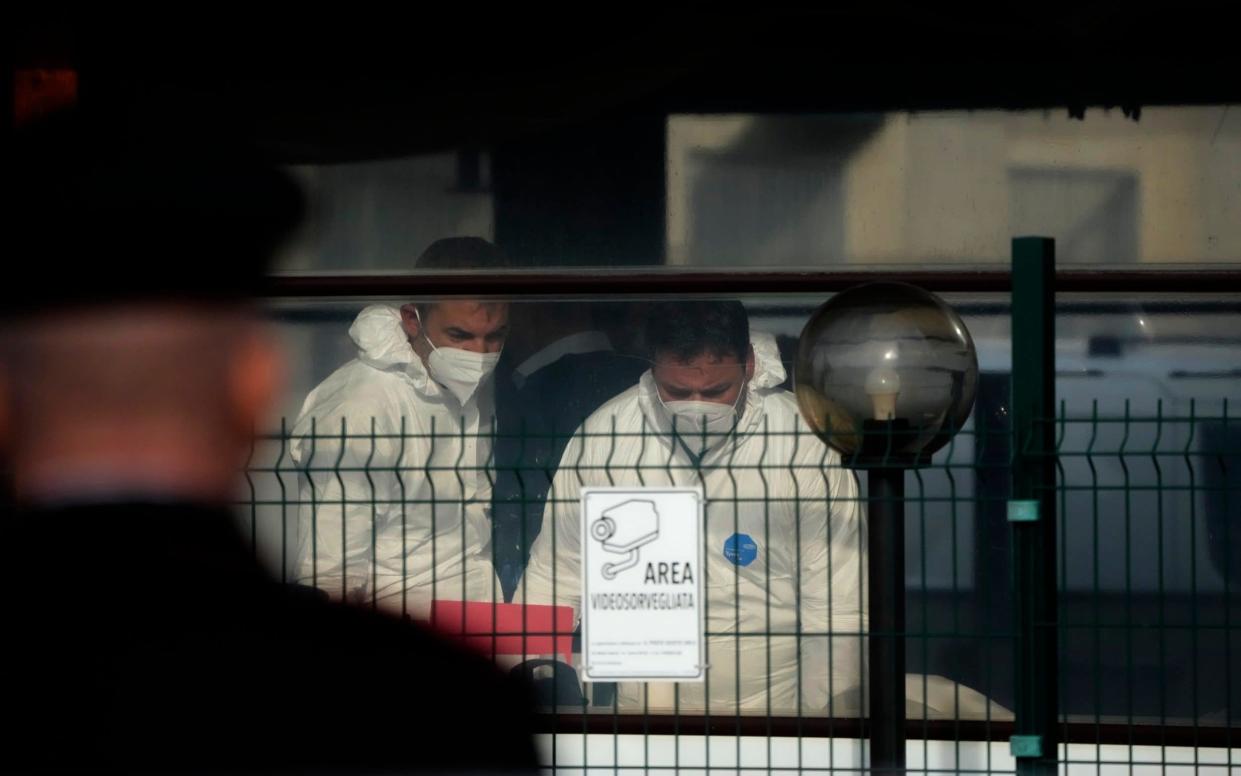Terror in Rome as wave of mob-style killings brings return of mafia-like violence

Luigi Finizio was at the petrol station close to his home in the rough Rome suburb of Torpignattara late one night last month.
As the 51-year-old filled up his car, two motorcyclists pulled up next to him and within seconds had fired eight bullets, killing him instantly.
Five days earlier, another man was gunned down in a hail of bullets by masked men on a scooter, in an eerily similar execution-style killing.
It was the third mob-style execution in this corner of the city in a week - a wave of targeted murders that has left residents fearing a return of mafia violence that rocked Rome in the 80s.
Though these three killings had seemingly little connection, police believe they were victims of a bloody struggle between organised crime families to control the Eternal City’s burgeoning cocaine market.
'Work of professional hitmen'
“There is no doubt that it was the work of some professional hitmen,“ one police source confirmed to a local paper, pointing to links uncovered between Mr Finizio and the powerful Sienese gang.
The brazenness of the killings, coupled with the fact that Rome had not experienced such a reality for several decades, led Roberto Gualtieri, Rome's mayor, to sound the alarm.
There is a “criminal escalation with the third murder in Rome in a few days", he wrote on Twitter. “We must fight this organised crime and drug trafficking.”
The newspaper Il Corriere della Sera made a calculation - in the last six months alone, there have been around 20 homicides in the Italian capital, on top of 15 suspected gang-related shootings.
One judge said he believed the police round-up in recent months of some of the biggest crime lords, including the Cosa Nostra’s Matteo Messina Denaro, has left an unprecedented power vacuum and sparked a street war to control the lucrative drug market.
“Rome is increasingly resembling Naples, where clans that make up the Camorra mafia fight each other to control neighbourhoods, and where there is no overarching criminal power structure,” said judge Alfonso Sabella.
“People haven’t really woken up to what is going on in Rome, and I fear attention will only be paid when a passer-by is hit by a stray bullet,” he said.
Return of gangs feared
Writing in the daily La Repubblica newspaper, Massimo Lugli, an expert on criminal gangs, wondered if his city was seeing a return of the bad old times when the Magliana, the Pesciaroli or the Marsigliesi gangs effectively ran Rome.
Federica Angeli, an investigative journalist for La Repubblica who has been under police protection for the last decade for her reporting on the Spada clan, told The Telegraph: “People in my community did not want to know me,” she said, after she had published an explosive investigation into the Spada family. “People here in [the Roman seaside town] Ostia were frightened. There were bars where they wouldn’t even serve me coffee.”
She has seen a real change in public attitude towards mafia gangs in recent years, however.
Today, residents who were once “frightened” to report anything have raised their heads in what she calls a sort of “cultural revolution”.
“Falcone [the great Sicilian mafia investigator killed by Cosa Nostra in 1992] used to say that the mafia is not unbeatable, that it is a human enterprise and that, as such, it has a beginning and it will have an end,” she said.

